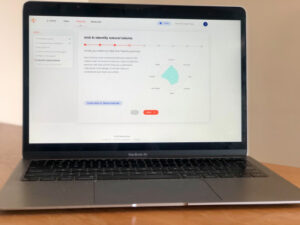Personality tests have been around for over 100 years, but the ethicacy and benefits of using these types of tests in the workplace is questionable. Let’s dive into some recent trends of using personality tests during the hiring process, and weigh the pros and cons for ourselves.
Consider The Candidate As A Whole
Benjamin Smith, Founder, Disco
Testing candidates on what they will do in certain situations, rather than what they say they’ve done in the past can help gauge what they actually would be like as an employee. This is important because someone may be intellectually smart, but lack emotional intelligence. They might be able to get work done on time, but crack under pressure and lash out in anger. Personality tests can help reveal these kinds of traits. However, not all tests will be helpful in making these kinds of determinations. It’s important to consider the candidate as a whole, and not focus too heavily on their personality test results.
Watch Out For Legal Action
Joaquín Roca, Co-Founder and CEO, Minerva Knows
You should be INCREDIBLY careful when using personality tests for selection. If there is not clear evidence that the test correlates with performance on the job and it is found to have adverse impact (an employment practices that may appear harmless but in practice has the effect of discriminating against a protected group), you are opening your business up to legal action, missing out on talent, and doubling down on your own (usually unvalidated) preconceived notions of who ought to be in a role which, more often than not, serves to reinforce homogeneity in hiring. In short, unless you are, or have consulted with, a trained psychologist, DO NOT DO THIS.
Aligning Your Mission, Values, And Goals
Liraz Birnbaum, Founder and CEO, Lula’s Garden
Personality tests can be beneficial when hiring if you’re trying to find candidates that align with your company’s mission, values, and goals. For example, if you are hiring someone for a customer service role and they score highly in having empathy, then they may be a good fit for the role. However, while these tests can be beneficial in some ways, they may not be the most accurate way of depicting someone’s entire personality. Asking situation-based questions in the hiring process is another helpful way to garner similar results, instead of relying on a personality test.
Finding The Strengths and Weaknesses
Dr. Patricia Thompson, President, Silver Lining Psychology
An objective assessment of intellect is gathered through the use of problem-solving measures. These are used to assess the candidate’s general cognitive ability, critical thinking skills, abstract reasoning ability and intellectual flexibility. Candidates are also frequently given various personality tests. This way, you can see the individual’s strengths as they align with the needs of the business and the areas in which he or she is likely to need coaching or assistance. Also, if the individual has certain qualities that are likely to be problematic, the organization can be alerted to this so a disruptive hiring mistake can be avoided. I consider the assessment to be a data point that corporations can utilize in making their hiring decision – it should never be the only factor considered when making a decision.
Entertaining, But Not Accurate
Dylan Fox, Founder & CEO, AssemblyAI
If anyone has ever suggested that you use a personality test as a part of your hiring process, it can be a good idea – for entertainment value. Now don’t get me wrong, you may learn a lot about a person’s ideas and the ways they may react to particular situations. However, this in no way shows if the person is productive, efficient, innovative, or has any of the skills relevant to the role for which they’re applying.
Use Other Resources Too
Jameson Rodgers, Founder, CBDfx
Perhaps one of the biggest pros is that personality tests remove unconscious bias. As we are grading each employee devoid of a first impression interaction or photo, this offers a more in-depth look at the respective candidates that otherwise would have been subjective.
The biggest con, however, is that such tests do not contextualize work experience, intangible qualities, or even specific skills. Therefore, at the very best, personality tests should be used in conjunction with other hiring techniques, and not be the sole resource used.
A Big Downside: Bias
Liz Tomic, CGO, Flying Embers
While there are many positives in using a personality test during the hiring process, there’s also a downside. They can help identify certain attributes and gain more insight into a candidate’s abilities, but they can also lead to bias, since questions can be framed in ways that can potentially disqualify a specific group. These tests can be an interesting tool to leverage when hiring, but relying too heavily on them can get you into murky territory.
Beware of Labels
Sean O’Brien, CMO, Modloft
If you’re planning on using a personality test for your next hiring venture, be sure to beware of labeling your applicants. On many personality tests, they classify individuals as purely introverts or extroverts, when in reality, we all know that there is really no such thing. By seeing someone only as a label, this creates a tunnel vision effect for employers. It would be terrible to miss out on hiring a great candidate just because of labels and potential bias from a test. This is why utilizing interviews and personal experiences may be a better way to figure out if a candidate will be a good fit for the job.
Seeing If The Candidate Will Be A Good Fit
Travis Killian, Owner and CEO, Everlasting Comfort
Personality tests have really become a trend as of late, with even businesses getting in on the action. But, how much can one of these tests really tell a company about a potential new hire? Apparently, the answer is quite a lot. A personality test can give a few hints to HR personnel, such as whether a candidate will fit the company culture, and is creative but will follow Standard Operating Procedures. Of course, you’ll learn more from a face-to-face, but getting a few ideas of what to expect beforehand could be quite helpful.
Increasing Productivity and Teamwork
Michael Hennessy, Founder and CEO, Diathrive
With many businesses, teamwork makes the dream work. If you already have a great team and are wanting to hire someone new for that team, a personality test could potentially help you see how well they will fit in with the group. Personality tests can also provide insight on how individuals communicate and how they work well with others. So by doing your research, this could actually help your team increase productivity. However, be weary of the legal battles involving employers using personality tests incorrectly as part of the hiring process.
Starting The Conversation and Working Together
Robbie Salter, Co-Founder, Jupiter
Personality tests are a helpful tool for understanding the motivations and behaviors of a potential new hire, but they are not without their flaws or limitations. Generally speaking, personality tests have some inherent algorithmic biases that may skew the results. Instead, we use the results of the test as a conversation piece before and after hiring the candidate. In doing so, we’re not only discussing where the candidate feels it was inaccurate (allowing them to defend bad data pre-hiring), but also having a candid conversation around how to work together harmoniously post-hiring.
Narrowing The Field
Adam Wright, President, CEO, and Co-Founder, Associated Graphics
We’ve found personality tests to be highly effective in further narrowing the field. Somebody can come in and claim to be a go-getter, but the tests provide evidence. We’re not alone in this strategy; the Society for Human Resource Management estimates that 18 percent of American companies utilize personality assessments as part of the hiring process.
Once you have someone in the door, conduct multiple interviews to make sure he or she is the right fit. We’re looking to strike a balance. For example, we want someone who will be aggressive in terms of doing everything they can for the client. But if that person is not a good communicator or appears to be overly competitive with coworkers, that could be a problem. You want your team to work together in a cohesive manner in order to provide the best service for your clients, not be focused on beating their colleagues in some way.








